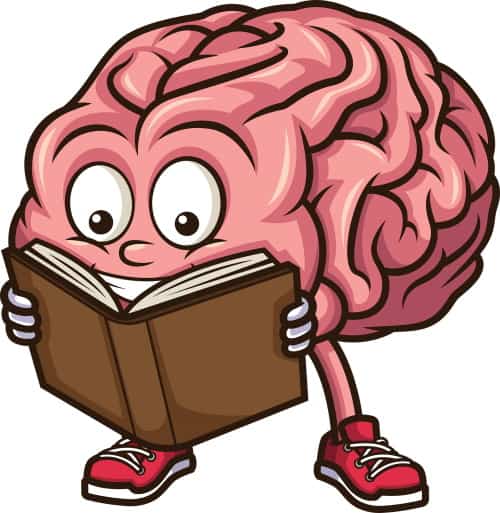
Learning a new language is not a walk in the park. If you are struggling to learn one, you are not alone. Many people want to expand their vocabulary but find it daunting, starting and then stopping almost immediately. There are multiple hurdles to pass to acquire a new language. But why, exactly, is learning a new language so hard?
Language learning is especially hard for adults because their brain needs to construct a new cognitive framework. Another issue is time, a precious and rare commodity in the adult world. Children have advantages in the brain and time categories, but often are seriously lacking in motivation.
Aside from the two major reasons, many other causes also contribute to why learning a new language is difficult. Read on to learn why learning a new language is so hard and what you can do to overcome each challenge, with incredible tips and tools available to almost anyone.
Contents
- 1 Factors Making Learning a Language Hard
- 2 Reasons Why Learning a Language Is Difficult
- 2.1 Phrases Might Not Make Sense
- 2.2 The Rules Might Be Inconsistent
- 2.3 Synonyms Are Not Necessarily Interchangeable
- 2.4 Some Words Have Multiple Meanings
- 2.5 Differences in Pronunciation
- 2.6 Idiomatic Expressions
- 2.7 Cognition Decreases With Age
- 2.8 Too Many Excuses
- 2.9 Thinking That It Is Too Academic
- 2.10 Lack of Time
- 3 Final Talking Point on Why Language Learning Is so Hard
Factors Making Learning a Language Hard

Surely you already understand and accept that learning a new language is a challenge. The two factors previously mentioned are just the tip of the iceberg for most of us: an “old” brain and lack of time. However, more key factors are involved with language acquisition.
In fact, a person’s age, the language chosen, and even the differences among individuals will impact how difficult learning a new language will be. But first, more about the brain.
The Brain Makes Learning a New Language Hard
Throughout your life, you must have encountered people who can easily breeze through Spanish and others who can barely murmur “hola.”
There is actually evidence to prove that the wirings in people’s brains can pre-determine language success. Neural networks have the capability to execute stimulating messages that will help in learning a language.
In a research study done by McGill University, they scanned the brains of participants before and after completing a rigorous twelve-week French course. Researchers observed that some people were cognitively better equipped for language learning than others. It is because their brains are conditioned or used to this kind of task.
If you are a complete novice in the language that you want to learn, you should understand that having such challenges does not mean that you should stop learning. The benefits far outweigh the costs if you know how to rewire your brain for language acquisition. In other words, it really does take two to tango.
The Learning Process
According to a definition by Virgili University, the learning process is a set of activities to meet developmental goals, such as language learning. They are carried out on an individual level, but this takes place in a cultural and social sense in which individuals integrate their current experience with their previous cognitive systems.

It is a fact that most adults prefer to learn by accumulating words. The problem, however, is that they also do not know how each piece connects together and interacts to create a grammatically correct phrase. An MIT study showed that most adults tend to overanalyze, which hinders their ability to pick up subtle nuances in language learning.
Analyzing too much can hurt the learning process even more than it helps the learner. A good tip is to do skill learning rather than object learning. Using this technique means you must stop being obsessed with perfection and instead get “messy” in learning.
- Accept making mistakes
- Learn from the mistakes
- Take note of it
- Move on to further stages of learning
The Basic Skills
As the name suggests, basic skills are your barebones foundation to perform the fundamental tasks of life. It is compared to upper-level thinking abilities, which include:
- Learning languages
- Basic skills
- Methods in learning languages
From data shared by McGill University (from what was mentioned previously), scientific evidence shows some adults find it easier to learn a second language as a basic skill than others, regardless of how different areas of the brain speak to each other.
Learning a language is arguably one of the most beneficial things you can acquire if done right.
Additionally, there are four skills that you will need to master a foreign language and gain a high proficiency in your communication. First is writing, which obviously involves drawing, sketching, composing a literary piece, and more. Secondly, speaking consists of activities such as singing or performing an oratorical performance.
The basic language skills mentioned above are considered active skills where people are the ones giving the information or a message. Next are the passive skills, which involve listening and reading. These two are done by grasping information or a message from an existing source. Thus, basic language skills are vital to success.
The Time

Translating every word to a learner’s native language takes time. It is the action of memorizing rather than understanding. Once the student has enough knowledge of the language, the transfer rate increases since they do not need their native language to filter content. But in the beginning, it is hard to avoid the process of translating.
Simply put, time is an important factor in various conditions and situations, such as the time when the learner is comfortable learning a new skill or language. The time in regards to learning a language also applies to the amount of time spent in learning the language.
The Learner
The older you get, the more difficult it becomes to learn a new language, especially fluently. This increased difficulty is why many adults find language learning to be so hard. The information you learn as an adult isn’t absorbed as easily as information learned as a child.
After age six, learning a new language becomes more difficult (I’ve written another article addressing the best time to learn a language.). After the age of 18, the task becomes even harder. However, it is not impossible for adults to learn or become fluent in a new language. It just requires more work, time, and a solid strategy, along with plenty of commitment and consistency.
Additionally, some people learn differently than others. The first method of language learning you try may not be the best way for you to learn – it is a process that can and should be adjusted and adapted as you go. There are many different tools, resources, and materials available to help with language learning.
The Difficulty of the Language

Now digging into the heart of this subject is all about the difficulty of the language. But first, take note that there are three fundamental components of a language, and they are:
- Words
- Grammar
- Phonology
The above components relate to the reasons why it is easier, for example, for most English speakers to learn a language that is similar to their native tongue. Some words might be easier to comprehend because they resemble a word from the native language of the learner. It all comes down to familiarity, which will help in the learning process.
When talking about grammar, every language has its own grammatical structure. For instance, the Japanese language has a distinctive structure in constructing a full sentence, following a subject-object-verb pattern compared to English’s subject-verb-object rule. It might be confusing and off-putting to those not used to it.
Difficulty and Time
Languages have four main categories. These categories determine the language’s difficulty. Category one is the easiest, and the difficulty moves all the way up to Category four, which is the most complex. Each category has its own average duration of learning, but this is not always the case, as there are various factors to consider.
| Category 1(24 Weeks) | Category 2-3(44 Weeks) | Category 4(88 Weeks) |
| Italian | Swahili | Korean |
| Spanish | Greek | Japanese |
| Afrikaans | Czech | Mandarin |
| Dutch | Vietnamese | Cantonese |
| German* | Thai | Arabic |
| Tamil | ||
| Mongolian | ||
| Amharic | ||
| Finnish | ||
| Georgian | ||
| Estonian |
*German has complex grammar and is estimated to have a minimum of 30 weeks of learning but still fits into the first category.
Spanish is the easiest language to learn for an English speaker. If you have ever noticed, its word order is (mostly) the same as in English and is easy to pronounce. It only has one letter extra in its alphabet, which is the letter “ñ.” Additionally, Spanish has many cognates, which are words that sound similar to English words.
Reasons Why Learning a Language Is Difficult
Now, you know some of the factors to consider when learning a second language. Next up are the specific reasons why some people (or maybe a vast majority) struggle to learn a language from scratch.
If you find learning a new language difficult, that is totally fine. There are many common reasons that exist as to why certain people fail to learn a new language.
These are contributing factors that explain why they stop moving forward and end up abandoning the task. Learning a language requires an intricate level of understanding to succeed.
These are also probably the same ones you may have come across in your journey to learn a new language. Read on to better understand the possible reasons why learning a language can be a hard task.
Phrases Might Not Make Sense
The first reason people struggle to learn a language is the basic phrases used by native speakers regularly. If you travel to a different country, these are the things that you would typically learn to engage a basic interaction. However, learning these phrases is easier said than done, and saying them might be awkward or unintelligible.
This is mainly due to the differences in sentence structure among languages. A bit of advice many give to those learning a new language is to focus on learning phrases rather than just words, as this will help to gain a better understanding of the language and how it is spoken naturally.
For example, to identify a brown dog in English, we would simply say, “That is a brown dog.” In Spanish, this phrase would be, “Ese es un perro marrón.” If you were to look at the individual words instead of the phrase as a whole, this would translate to, “That is a dog brown.” It does not really make sense, right?
This is why phrases and differences in sentence structure can be tricky. By focusing on phrases instead of individual words, you can help make the language learning process a little less confusing.
The Rules Might Be Inconsistent
Learning languages requires taking note of their specific rules, which might be confusing to new learners (I’ve addressed the frustration with English rules in another article, too.). For instance, the English language has standard rules like any other language, whether they be grammatical or used to assist with grammar. There are a number of them, and in many places, they can be:
- Fractured
- Contradicted
- Disproven
Language “rules” vary, though. What many native English speakers have come to know as a rule is likely to be different or irrelevant in another language. And for those who are not native English speakers, the rules of the English language can be strange, overwhelming, and difficult to understand.
For example, in English, a spelling rule is that in most words, the letter “i” comes before the letter “e.” There are exceptions to this rule, though, such as the word “weird” or if the letters “i” and “e” come after the letter “c,” such as in the word “receipt.” This is just one instance where language rules can vary and quickly become confusing.
It is also hard to overcome the brain’s natural tendency to revert to the techniques and rules of your native language when trying to learn a new language. Certain languages are more similar than others and trying to learn one that is very different from your native language is even more challenging.
Synonyms Are Not Necessarily Interchangeable
Synonyms are, by definition, different words meaning the same thing. However, this does not mean that all synonyms are interchangeable. Particularly when translating from one language to another, certain words are suitable in a sentence or phrase, and others are not – even if those words technically have the same general meaning.

This can make it easy to make mistakes, such as using a word in the wrong context. It also adds to the frustration and difficulty of learning or becoming fluent in a new language.
Some Words Have Multiple Meanings
Sometimes, a single word will have two or more meanings, which can also make language learning more difficult. Some English homonyms (words with multiple meanings) include:
- Bench: A surface area to sit or work. A term used in court. A term for removing someone from a game. A term for lifting weights in a bench press.
- Address: To communicate, deal with, or speak to. It is also a place or location.
- Bark: The outer layer of a tree. The vocal sound made by a dog.
- Bat: Sports equipment. An animal. To hit or swat at something.
Words with more than one meaning can easily be used out of context by someone who is unfamiliar or less knowledgeable in a language than a native speaker. Depending on the language, the difficulty of learning will vary. Some languages are based on entirely different systems of writing and can take years to master.
Differences in Pronunciation
Beyond spelling and context is grammar, which may often create as much uncertainty for those studying another language. This reason is a big one since people’s tongues are intricately built, and their vocal nodes perform a little bit different, especially depending on their mother tongue.
Some words are pronounced exactly as they appear. In other words, they can be “sounded out” fairly easily. Others are a little more difficult, and the English language is riddled with these words that sound nothing like they appear as though they should sound or words that are spelled similarly but pronounced differently.
For example, in English, there are multiple different ways to pronounce words that end in the letters “ough”:
- The “ough” in “tough” and “though” are pronounced entirely differently – “tough” sounds like “tuff,” while “though” is pronounced “tho,” as the “ugh” in that word is silent
- To further complicate things, look at the words “bough” and “through” – the first is pronounced “bow,” and the second sounds the same as “threw”
And those are just examples in English. When taking into consideration letters that are silent in words (such as “knife” or “gnome”), along with all the other various pronunciations and variations of different languages, the learning process – especially when learning a new language – can be very complex.
Outside of English
Without talking about the various structures of dialects, the pronunciation might drastically differ from one another. Bizarre pronunciations only begin as you render certain special ethnic dialects in the United Kingdom, such as varying vowel sounds.
In some languages, an entirely new way of speaking, tone, and pitch is used – such as with German, Arabic, Mandarin Chinese, and Swedish – making the learning process even more complex and therefore difficult. Others use different concepts in terms of grammar, such as Russian.
Language learning is a lengthy process, and depending on the language you are learning, it can involve several different complicated aspects. Once you start to learn the specific, varying factors of the language you are studying, the process will get easier.
All this contributes to the fact that learning a new language is not something that will happen overnight. It also helps to explain why the process of learning a new language is much more than just memorizing words or even phrases and why it can, in some cases, be quite difficult.
Idiomatic Expressions
Idioms are a language’s take on the style. It is a collection of expressions that are not to be taken literally because they have deeper connotations. You might encounter an idiom or two in your life, and it is easy to understand how baffling they can be to someone who is unfamiliar with them.

Idioms are also a prime example of why not everything should be taken literally. Some common idioms in the English language followed by their actual meanings are:
- The sky is falling, or it is raining cats and dogs – used to describe heavy rain or bad weather
- Turning a blind eye – to ignore someone’s behavior or actions
- In a blue moon – something that does not happen very often
- Fat chance – little or no possibility of something happening
Often, native speakers of a language will use idioms without a second thought – but to someone learning a language, hearing someone say that it is raining cats and dogs might be a little alarming, not to mention confusing.
If you are learning a new language, idioms are something you will want to familiarize yourself with.
Along with the previous points, idiomatic expressions are some of the parts as to why learning a language can be tricky – but with enough education, practice, persistence, and progress, the language might be learned in any other tongue.
Cognition Decreases With Age
This is a major factor to consider. In learning any language of any difficulty, children can easily absorb the knowledge they are given from a young age.
As a child, you probably heard your parents speak one language while growing up. You also watched TV in one language and engaged in other activities in one language.
Because of this, you absorbed that language, and by the time you were able to speak, you could do so fluently. And this is how you learned your mother tongue.
Younger people tend to grasp information more quickly and effectively, and they have the ability to associate things to certain bits of information for an enhanced learning process.
However, as an adult, this process became difficult, as you did not process new knowledge or make connections in a simple way like when you were a child. Without any intention to disrespect the elderly, they have less cognitive proficiency compared to younger people.
This does not mean that elderly people would not be able to learn a new language. It is just that the process will be more difficult. You may try learning the language slowly according to your pace and will observe noticeable results. Through consistency and perseverance, regardless of age, learning a new language is not impossible.
Too Many Excuses
This is something that many people are guilty of. When you start learning a language, and you pre-determine that it will be hard in the long run, you might become demotivated, which will lead to stopping the whole learning process.
Just know one thing: nothing worth doing or knowing is easily achieved, and learning a language requires dedication.
In some cases, a lot of time is wasted in attempting to find out why a person does not make any progress rather than spending the wasted time learning the language. This might become a never-ending cycle of procrastination, and that is one of the first obstacles you should overcome in learning a language.
Trying to find out why is one explanation, and is therefore daunting for an adult to acquire a foreign language. However, even though adults think and behave differently from children, it is possible to master a foreign language if you have the right mindset and tools. Everyone’s learning curve is different.
Thinking That It Is Too Academic

Keep in mind that learning a new language is not like learning a new subject like Math or History. You cannot organize all language parts in a certain, standardized way. Each has its own style and “rules.”
However, simply knowing how a language works will not help you to learn it. You must dive in and completely immerse yourself in learning a language.
In learning a language, you should understand that a language has its own set of rules and conditions. This does not necessarily mean you are learning something from an institution. What you should do is to find the fun in it and make the learning process more entertaining. Try doing things like:
- Playing games (I recommend Scrabble-linked to Amazon- for language practice.)
- Downloading a language learning assistant tool, app, or other software
- Include language learning in your favorite hobby
- Use your target language for daily functions like your phone setting
Lack of Time
Lastly, the lack of time is simply one of the most relatable reasons for having difficulty with learning a new language. With a busy life, a career, a child to attend to, or other daily obligations, it is easy to see the challenge of finding the time to study a language. Do not feel bad because this is a legitimate struggle.

Even watching a video or attending a brief online lesson is not appealing because much of it reflects the waste of your already dwindling free time. However, this does not mean that you can spend your free time learning a language bit by bit. After all, you do not have to learn everything in one sitting. A little progress is still progress.
Final Talking Point on Why Language Learning Is so Hard
Learning a new language is indeed difficult but not impossible. You must know and understand the obstacles and challenges ahead.
Accept them and stay motivated, and you will soon reap the rewards of learning a new language, no matter how difficult it might seem at first.
Many ways already exist for you to learn online. All you have to do is to choose the best method that suits your learning style.
Then, stick with it, set your goals, and believe in yourself. With a solid plan and consistency, you may surprise yourself and become the polyglot you always dreamed of being.
Sources:
https://time.com/5261446/language-critical-period-age/
https://www.strategiesinlanguagelearning.com/is-language-learning-hard/
